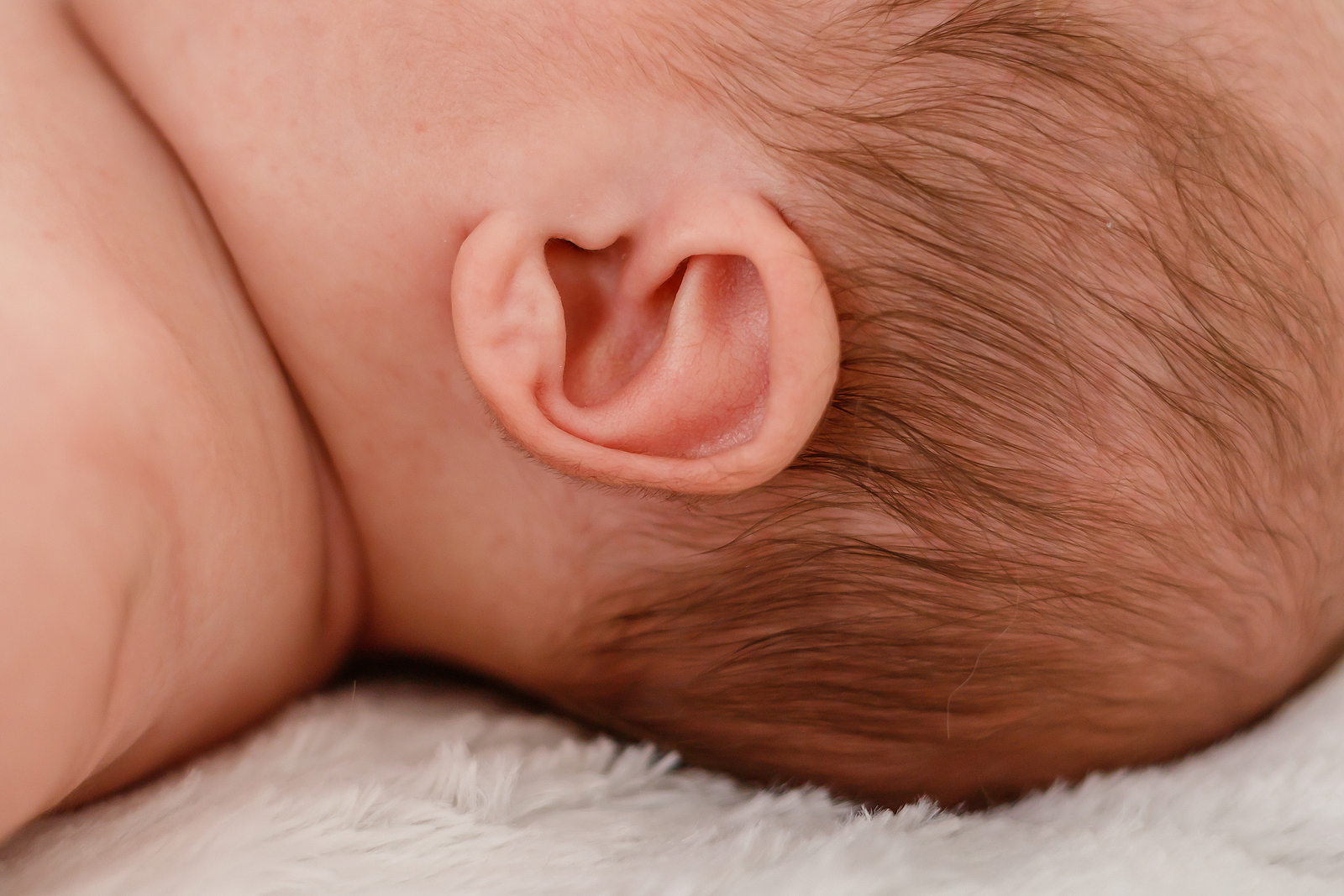
Hearing loss is not a common occurrence in children. Even before you bring your newborn baby home from the hospital, they will receive a hearing screening. Yet, parents should be aware of signs that their child may be showing signs of trouble hearing.
Newborns can use hearing and listening as powerful learning tools, from birth. Most babies have no trouble hearing. Only 1 to 3 out of every 1,000 babies that are born in the United States have trouble with their hearing that is considered outside of the typical range. (Healthy Children)
Are there signs to look for in my baby for possible hearing loss?
Loss of hearing can be congenital, or from birth, or it can begin at some point throughout a child’s life. It is important to know when to expect your baby should normally be achieving certain milestones, as compared to other babies. Knowing this will help you to know if there are any signs that could mean that your baby is showing any hearing loss. Below is a chart of average milestones that will help to guide you through. If you notice any deviation from these, let your baby’s doctor know.
Developmental Milestone Indicators There are important developmental milestones that babies should normally reach within specific age ranges that show that they are on level. Hearing, understanding, speech, and language are some of the categories, and any difficulties within these could indicate issues with hearing in your baby. Below is a table listing the age ranges and the milestones to be looking for within those categories.
It is important to note that not all children reach each milestone within each exact age level, but if there is a concern, it is something that you want to address with your child’s pediatrician as soon as possible.
Are there factors that could mean my baby is at higher risk?
Some children could be at a higher risk for hearing loss if they were born earlier than full-term, had any complications, or had a stay in the Neonatal Intensive Care Unit, or NICU. They may also be at risk if they have received any medicines that are deemed to cause complications with, or lead to, hearing loss. Other risks include if your baby has gotten a lot of ear infections, or any other infection that can damage hearing such as cytomegalovirus or meningitis. (Kids Health, 2021)
Is there testing and follow-up testing?
As previously mentioned, testing begins in the hospital, at birth, and at each check-up. Therefore, each check-up is very important. With early intervention and testing, 80-90% of hearing loss in babies and children can be detected. So, it is important that you take your baby to each check-up. (Hearing Health Foundation, 2022)
During each of your regularly scheduled visits with your baby’s pediatrician, the doctor will check your baby’s hearing. Hearing tests will begin at the age of 4 years old for your child. (Kids Health, 2021)
You should always address any concerns with your baby’s hearing that you have with the doctor during each visit. Never be worried about discussing anything that you notice, or even schedule a separate appointment if you feel the need for a more urgent appointment. Your child’s pediatrician should welcome any discussion about your child’s growth, health, needs, and wellbeing.
Works Cited
“Signs and Symptoms of Hearing Loss in Children.” Cochlear, 31 Jan. 2022, https://www.cochlear.com/us/en/home/diagnosis-and-treatment/diagnosing-hearing-loss/signs-of-hearing-loss-in-children. Accessed 30 Apr 2022
Hearing Health Foundation. “10 Clues Your Child Has a Hearing Loss.” Hearing Health Foundation, Hearing Health Foundation, 3 Mar. 2022, https://hearinghealthfoundation.org/blogs/10-clues-your-child-has-a-hearing-loss. Accessed 30 Apr 2022
“Newborn Hearing Screening Faqs.” HealthyChildren.org, https://www.healthychildren.org/English/ages-stages/baby/Pages/Purpose-of-Newborn-Hearing-Screening.aspx. Accessed 30 Apr 2022
“How Will I Know If My Child Has Trouble Hearing? (for Parents) – Nemours Kidshealth.” Edited by Mary L. Gavin, KidsHealth, The Nemours Foundation, July 2021, https://kidshealth.org/en/parents/trouble-hearing.html. Accessed 30 Apr 2022

